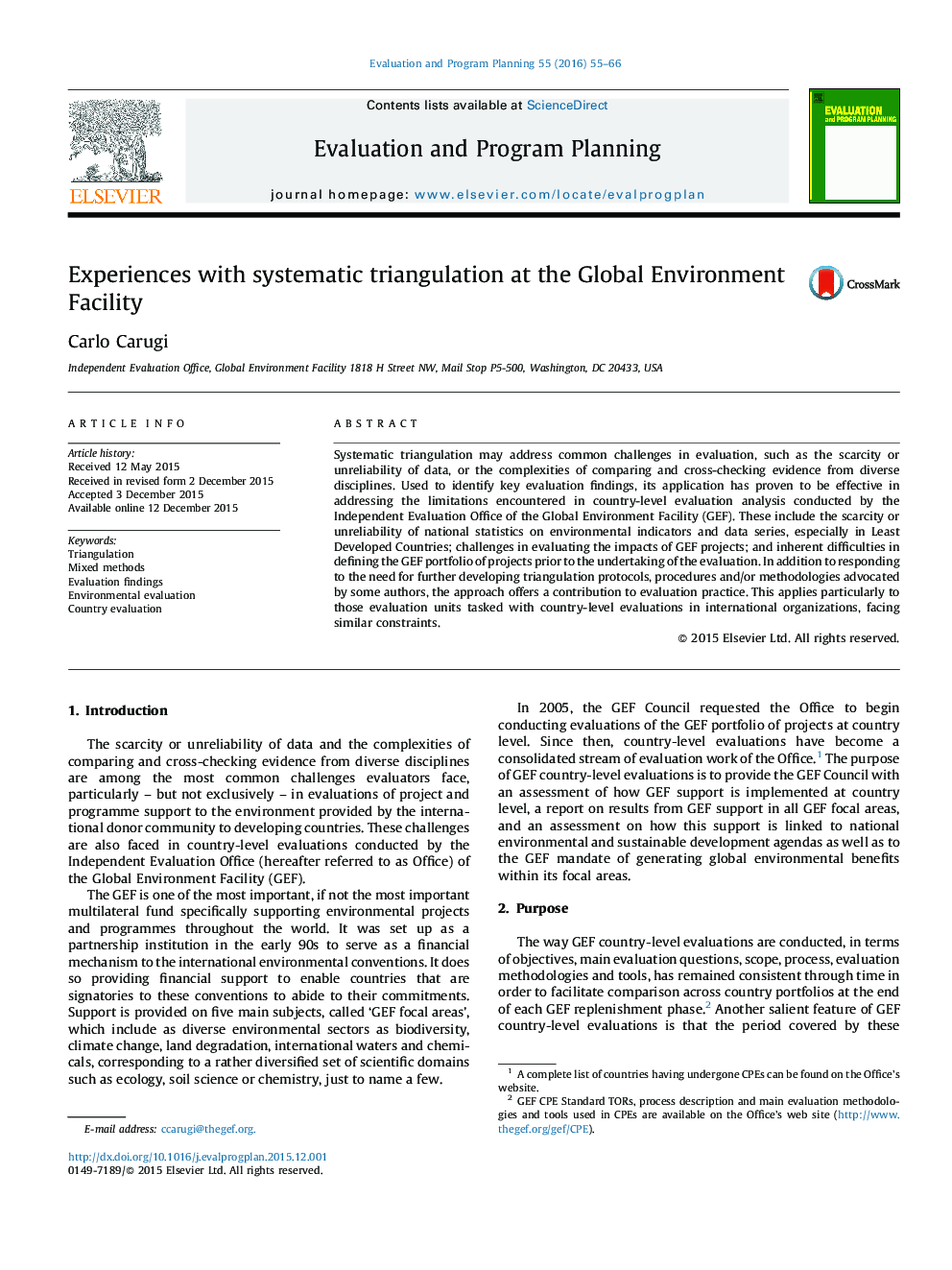| Article ID | Journal | Published Year | Pages | File Type |
|---|---|---|---|---|
| 6792853 | Evaluation and Program Planning | 2016 | 12 Pages |
Abstract
Systematic triangulation may address common challenges in evaluation, such as the scarcity or unreliability of data, or the complexities of comparing and cross-checking evidence from diverse disciplines. Used to identify key evaluation findings, its application has proven to be effective in addressing the limitations encountered in country-level evaluation analysis conducted by the Independent Evaluation Office of the Global Environment Facility (GEF). These include the scarcity or unreliability of national statistics on environmental indicators and data series, especially in Least Developed Countries; challenges in evaluating the impacts of GEF projects; and inherent difficulties in defining the GEF portfolio of projects prior to the undertaking of the evaluation. In addition to responding to the need for further developing triangulation protocols, procedures and/or methodologies advocated by some authors, the approach offers a contribution to evaluation practice. This applies particularly to those evaluation units tasked with country-level evaluations in international organizations, facing similar constraints.
Keywords
OECsUNCCDFSPLDCTORSUNDPPIDsGEFSGPUCSFMTAPMISUNFCCCCBDCELFCPENEMsPOPsPersistent organic pollutantsUnited States Agency for International DevelopmentethEnvironmental EvaluationUnited Nations Development ProgrammeUSAIDUniversity of California San FranciscoMixed methodsTerms of ReferencetriangulationGlobal Environment FacilitySuccessEuropean CommissionUnited nations framework convention on climate changeUNAIDS
Related Topics
Health Sciences
Medicine and Dentistry
Public Health and Health Policy
Authors
Carlo Carugi,
